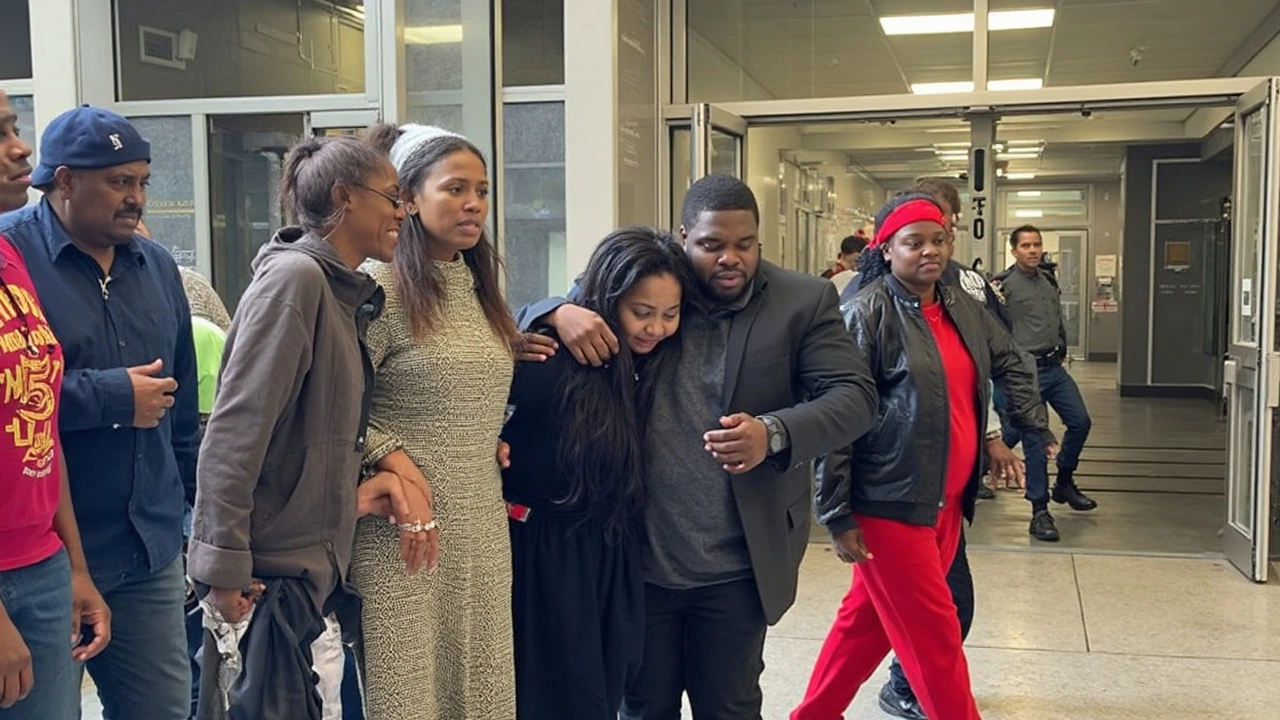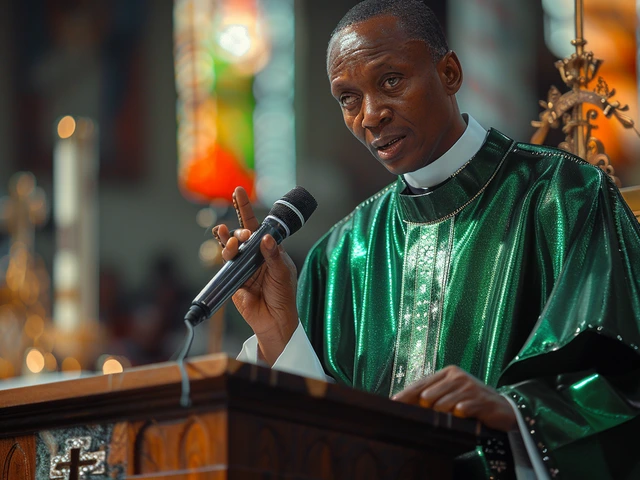Family Takes Stand Against Media Blackout in WSU Student Death Case
The fallout from the fatal student protest at Walter Sisulu University (WSU) isn't confined to campus. Sisonke Mbolekwa’s family is now fighting a legal battle just as wrenching as the events that claimed his life. After a court blocked the media from covering the murder proceedings against residence manager Manelisi Mapane, the family's voices have surged to the forefront, demanding transparency and public scrutiny.
Mbolekwa’s death during a demonstration in Mthatha has already cast a harsh spotlight on university safety and protest management. Allegations point to Mapane firing the shot that killed the young student—charges that will be tested in court. But what makes this case different from many others is not just the violence, but how the fight for open justice is playing out long before the trial.
The court cited privacy and the emotional sensitivity of the situation when it shut out cameras and reporters last week. Yet, Mbolekwa’s relatives say they weren’t even consulted—a detail that’s only ramped up their frustration. Piaba Madokwe, speaking for the family, insists their interests were used as an excuse for secrecy, rather than a true reason. "We are told the previous judgment was based on protecting families," Madokwe said. "But that wasn’t our view, and no one asked."
In a move rarely seen in cases like this, the family has sent affidavits to the court supporting the media’s right to be present. They want the world—not just people in the courtroom—to witness developments as Mapane heads to his bail hearing scheduled for May 6, 2025. To them, the ability of friends, distant relatives, and especially fellow students to follow the case in real time is non-negotiable. It’s about giving a voice to those who can’t travel to Mthatha, and about holding everyone—victim and accused—fully accountable.
Transparency, Trust, and Tensions on Campus
This push for media access doesn’t exist in a vacuum. The WSU student death has become a flashpoint in much larger debates: how universities handle dissent, what happens when staff become part of violent escalations, and the extent to which institutions should be held to public scrutiny. Students have criticized WSU’s response for being slow and opaque. Meanwhile, university officials remain under fire for campus security breaches and unclear communications about what went wrong during the protests.
Open courtrooms are usually taken as a given in South Africa—especially in cases that capture public interest. Legal experts say closing them off should only happen for compelling reasons like protecting minors or witnesses at risk. But here, the judge argued that shutting out the media would help shield families from unwanted attention. The Mbolekwa family’s appeal argues the exact opposite: Only sunlight can keep things honest. They believe that accountability means not allowing proceedings to slip quietly out of public view.
This fight over coverage is bound to shape what happens next. If the court reverses its earlier ban, reporters and cameras could return when Mapane appears for his bail hearing this spring. That could also set a precedent for other high-profile cases—especially those where survivors and victims’ families demand the right to decide how justice is witnessed.
For now, as lawyers prepare arguments and emotions run high, one thing is clear: the struggle over who gets to watch justice unfold may prove just as important as the verdict itself.







Vida Yamini
June 2, 2025 AT 18:19The sorrow that has fallen over the Mbolekwa family is a stark reminder that justice is not just a courtroom procedure but a lived experience for those left behind. Their fight for media access shows a profound courage that should inspire every student who values transparency. When a judge decides to shut the doors, it sends a signal that the public’s right to know can be eclipsed by vague notions of privacy. While protecting families is a noble aim, it must not become a blanket excuse to silence the very voices that need to be heard. Open hearings act as a mirror, reflecting both the strengths and the failures of our institutions. In the case of WSU, that mirror is needed now more than ever because it will expose how protest management can turn deadly. The university’s response, or lack thereof, has already raised questions about safety protocols on campus. By allowing journalists to report, we also give space for independent analysis that can guide future policy. The family’s request for a public bail hearing is not a stunt; it is a legitimate demand for accountability. They are asking the nation to bear witness, and that collective witnessing can pressure authorities to act responsibly. Moreover, transparent coverage can help the community heal, as people will have the facts rather than rumors. It also protects the accused, for an open process diminishes the risk of secretive bias. The court’s decision will set a precedent for how similar cases are handled across the country. If the ban is lifted, it could become a model for balancing privacy and the public interest in future disputes. Until then, we stand with the Mbolekwa family and hope that the light of public scrutiny will break through the darkness of secrecy.
James Lawyer
June 3, 2025 AT 12:22From a jurisprudential perspective, the court’s invocation of privacy warrants a thorough examination of statutory limits on open justice. The South African Constitution enshrines the right of access to information, yet it also permits reasonable restrictions to safeguard vulnerable parties. In this context, assessing whether the family’s interests genuinely outweigh the societal need for transparency is essential. Legal scholars have argued that the threshold for sealing proceedings should be exceptionally high, particularly when the matter involves public safety and institutional accountability. Therefore, the upcoming bail hearing presents an opportunity to delineate the boundaries between private grief and public oversight.
Abby Culbertson
June 4, 2025 AT 06:25i feel really sad for the family its just not fair. they deserve to know whats happening.
Awolumate Muhammed Abayomi
June 5, 2025 AT 00:29Yo fam! This whole media block is total bs and the uni needs to step up its game. We cant let them hide behind “privacy” when lives are at stake, so keep pushin for the cameras!
Josh Tate
June 5, 2025 AT 18:32i hear you, it’s heartbreaking when truth gets hidden. hoping the court listens and lets the world see the process.
John Smith
June 6, 2025 AT 12:35Listen, the legal system has dealt with these kinds of sealed hearings before, and most of them end up being overturned once public pressure mounts. It’s just basic precedent, nothing new.
Alex Soete
June 7, 2025 AT 06:39Alright, crew, let’s channel that energy into constructive action – share verified sources, tag journalists, and keep the conversation civil. When we stay informed and respectful, we give the court the pressure it needs without sinking into chaos.
Cara McKinzie
June 8, 2025 AT 00:42Honestly this is just another media circus, everyone acting like it’s the end of the world. u know how these things blow up, then fizzle.
Joseph Conlon
June 8, 2025 AT 18:45While many rally behind the family’s demand for openness, it is worth considering whether unchecked media presence could inadvertently compromise the fairness of the trial. The intense spotlight that accompanies sensational reporting may sway public opinion, creating an environment where jurors feel pressured to align with popular sentiment rather than the evidence. Moreover, constant camera crews can turn a solemn legal proceeding into a theatrical performance, detracting from the solemnity that justice requires. Historical cases have demonstrated that excessive publicity can lead to appeals on grounds of prejudicial influence, lengthening the legal process and exhausting resources. In South Africa, the principle of an impartial trial is enshrined alongside transparency, suggesting a need for balance rather than an absolute default toward exposure. By allowing journalists unrestricted access, we risk eroding that balance and setting a precedent that could jeopardize future defendants’ rights. It is also possible that families on the receiving end of such exposure may feel re‑victimized, forced to relive trauma in the glare of public scrutiny. Therefore, a measured approach-perhaps limited live streaming with controlled commentary-might serve both interests without tipping the scales. The court’s cautious stance may, in fact, reflect a sophisticated understanding of these dynamics rather than a simple act of secrecy. Ultimately, the conversation should shift from “who gets to watch?” to “how do we protect the integrity of the process while maintaining accountability?”
Mohit Singh
June 9, 2025 AT 12:49Enough with the academic babble – the real issue is that families are being silenced, and you’re just dressing it up in legalese. The court should lift the ban now, not debate philosophy.
Damian Liszkiewicz
June 10, 2025 AT 06:52🌟 The whole community stands behind the Mbolekwa family, and it’s crucial we keep the conversation grounded in empathy. Transparency isn’t just a legal term; it’s a pathway to collective healing. By opening the courtroom to media, we allow not just journalists but every concerned citizen to bear witness and learn from this tragedy. This can foster a culture where institutions are held accountable, and future incidents are prevented. Let’s remember that the fight for open justice is also a fight for the dignity of those affected. 🙏
Angela Arribas
June 11, 2025 AT 00:55Actually, the previous comment contains several grammatical missteps – “the whole community stands behind” should be “the whole community stands *with*”. Also “not just journalists but every concerned citizen” needs a comma before “but”. 🙄
Sienna Ficken
June 11, 2025 AT 18:59Oh, because nothing screams “justice” like a camera crew scrambling for the perfect Instagram shot of a bail hearing. Sure, let’s turn someone's darkest moment into a trending hashtag. 🎭
Zac Death
June 12, 2025 AT 13:02Hey everyone, I get why emotions are running high – this case hits close to home for many of us who care about campus safety and due process. It’s easy to feel helpless watching a courtroom door close, but remember that public pressure has moved the needle before. When we consistently share reliable updates and keep the dialogue respectful, we create a ripple effect that reaches the judges and policymakers. Think of it as a marathon, not a sprint; each comment, article, and share adds momentum. Our collective voice can remind the legal system that transparency is not a luxury but a necessity. So let’s keep the conversation alive, stay informed, and support each other through this tough time. Together, we can help ensure that justice isn’t done in the shadows.
Lizzie Fournier
June 13, 2025 AT 07:05Totally agree, it’s about steady vibes and keeping the info flowing without the drama.
JAN SAE
June 14, 2025 AT 01:09Listen up, team, this is a moment to rally together, to stand in solidarity with the Mbolekwa family, and to amplify their call for openness, because every voice counts, and every ounce of support helps, so let’s keep the conversation going, share verified sources, and remind the court that transparency is key, alright?
Steve Dunkerley
June 14, 2025 AT 19:12From a procedural compliance standpoint, the dissemination of peer‑reviewed data streams aligns with best‑practice governance frameworks, thereby reinforcing accountability mechanisms while mitigating information asymmetry.